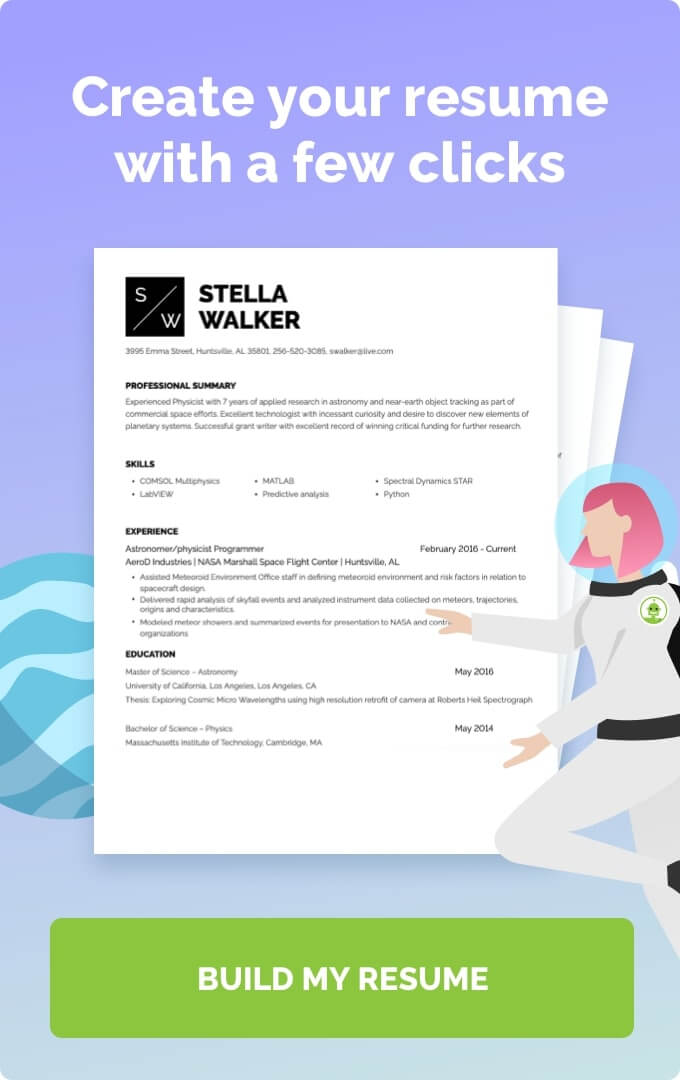A good resume may not guarantee you’ll get the job…
But a bad resume can definitely ensure that you won’t.
Table of Contents
 Introduction
Introduction
Not sure if you have a bad resume? Examples of things that won’t impress hiring managers include too-long documents, boring bullet points, and a lack of expressing what you’ll bring to the potential role.
If your resume is in fact in a sorry state, can it be saved?
The answer is yes!
There are several easy and reliable improvements for even the most lackluster resumes. Read on to learn how to assess where your resume falls on the good vs. bad spectrum — and how to polish it into the ultimate job-nabbing document.
 Is Your Bad Resume Holding You Back?
Is Your Bad Resume Holding You Back?
The short answer? Probably.
It’s difficult to overstate the negative effects of a shoddy resume. According to experts, the job application process should be treated like a competition — and your resume is the weapon that helps you fight your way to the top of the list.
“The worse your resume is, the farther down that list you fall,” says John Roccia, Director of Career Services at staffing agency Ama La Vida. “If you want to make it onto the ‘shortlist’ that even gets a phone call, your resume has to generally be in the top 5-10% submitted for a role. Bad resumes won’t get you anywhere close.”
 What Makes a Resume “Good”?
What Makes a Resume “Good”?
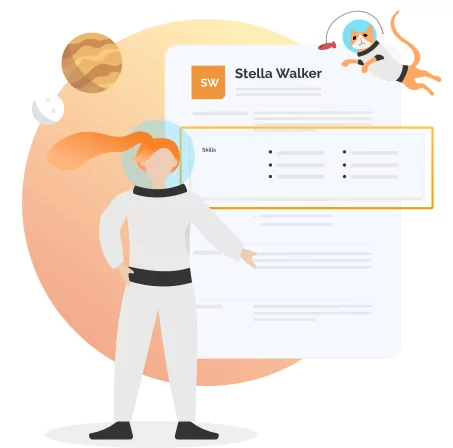 You definitely don’t want to have a bad resume. But what makes a resume “good”?
You definitely don’t want to have a bad resume. But what makes a resume “good”?
It’s all about succinctly selling yourself. Show that you’re the ideal solution to fill the company’s currently empty role, says Tina Callison, owner of Loud Resumes LLC, a professional resume writing service. “A good resume clearly and concisely shows your value to potential employers,” she says. “This means that it is easy to read, gives concrete examples of things you have done in the past, and it keeps the focus on what the company is looking for, not on what you are looking for.”
That last part is important — instead of expressing that you need a job, you’ve got to make the company feel like it needs you.
“When you think about advertising or marketing campaigns, as a consumer you don’t want to see an ad that says, ‘You should buy our product because we need to increase our revenue for the year.’ No, as a consumer, you want to know how the product benefits you,” explains Callison. “Hiring managers are the same way; they only care about how and why hiring you would benefit them.”
 How To Avoid Writing a Bad Resume
How To Avoid Writing a Bad Resume
Of course, the best way to ensure that you’ve got a good resume is to avoid writing a bad one in the first place. Here are some proactive steps you can take to ensure that your resume doesn’t fall on the “bad” list:
Quantify Your Experience
As you compose your resume, try to anticipate how you can express the information in a way that’s compelling to hiring managers. One effective way to do that? Add compelling facts and figures.
Here is what Callison advises: “As you are thinking about your experience, ask yourself, ‘How many?’ ‘How often?’ and ‘How much?’ For example:
✓ “How many people were on your team?
✓ Or, how many people did you train?
✓ How often did you complete those tasks?
✓ How much time/money/etc. was saved because of what you did?”
“Adding quantifiers to the experience makes it more relatable, interesting, and valuable,” concludes Callison.
Proofread Your Resume
One of the simplest yet most effective ways to make sure your resume shines? Proofread it.
Proofreading is often overlooked in resume writing — but it’s actually a great way of subtly demonstrating an important job skill. You will reduce grammatical errors, correct weird wording, and demonstrate that you’re professional and detail-oriented.
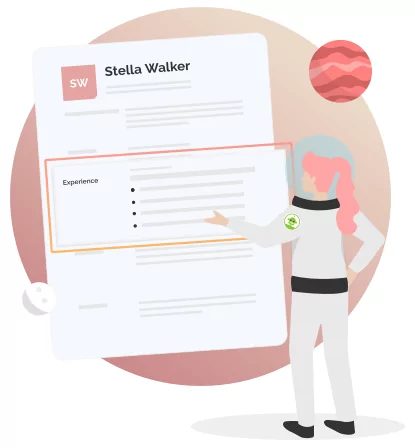 Having a second set of eyes review the document is always a great way to make sure there are no errors.
Having a second set of eyes review the document is always a great way to make sure there are no errors.
Barring that, Callison also has an offbeat but effective trick for seeing your resume with new eyes: “After reading it through from beginning to end, start at the end and read it backward. This will help you catch any typos that you may have missed because the human brain often ‘autocorrects’ things as we read, but when we read things backward, we are forced to look at each word and mistakes are easier to spot.”
Embrace Brevity
Channel your inner Ernest Hemingway and try to say the most you can with the fewest words. “Here is the highest-impact piece of advice you will ever get on your resume: when in doubt, cut,” says Roccia. “I’ve helped hundreds of people with resumes in my career; I have never ever made one longer.”
Roccia likens an overly-long resume to having to hand a business associate two separate business cards because you can’t include everything on one.
It’s just not a thing.
“There are sometimes (rarely) reasons to go to two pages; there’s almost never a reason to go to three,” he says. “If you’re a stellar, experienced professional and you can get your resume to one page, you look like a boss.”
 Bad Resume Examples and How to Improve Them
Bad Resume Examples and How to Improve Them
Whether you’ve determined that your resume is bad and needs a total rehaul or it’s in decent shape but could be better, there are a number of easily actionable ways to make it sparkle.
Here are some common bad resume examples and how to overcome them:
A Poorly Written Professional Summary
Since your professional summary is the first part of the resume that a hiring manager will read, making a good first impression is of the utmost importance.
First off, Callison advises educating yourself on the difference between the formerly-favored objective statement and a professional summary. “Objective statements 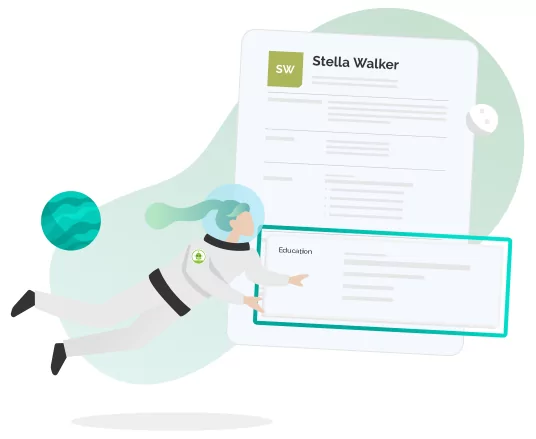 should never be used,” she says. “They are outdated and they put the focus on what the job seeker is looking for rather than the value that the job seeker can bring to the potential employer.”
should never be used,” she says. “They are outdated and they put the focus on what the job seeker is looking for rather than the value that the job seeker can bring to the potential employer.”
But not just any professional summary will do: “they are only effective if they are written in a way that grabs the reader’s attention and makes them want to continue reading to learn more,” Callison continues.
She advises omitting vague buzzwords like “results-driven” or “hard worker.” Instead, she says, “use this prime real estate on your resume to give concrete examples of what you have done and how that experience translates into making you a great fit for the position that the hiring manager is trying to fill.”
A Boring List of Job Duties
Did you know that boredom can cause a number of negative responses in the brain? That’s not the kind of impression you want to make on a hiring manager.
A common mistake Callison sees on resumes is boring, rote lists of job duties. “Bullet point after bullet point beginning with the phrase, ‘Responsible for…’ doesn’t do much to hold the reader’s interest or show what kind of accomplishments you’ve achieved throughout your career,” she says.
Rather than simply listing job duties, offer concrete examples of what your duties entailed, and keep your language dynamic. Callison suggests, “Keep the reader engaged by beginning each bullet point with an action verb, such as, ‘Created’, ‘Spearheaded’, or ‘Cultivated’, and be sure to vary the verbs that you use.”
Not Selling Yourself
Another common issue with the experience section?
Forgetting to sell yourself.
“Remember, this is a marketing document! It isn’t describing you, it’s selling you,” Roccia says.
Be brief, to the point, and try to find a dynamic way of expressing what you’ve done. “If you were an accountant, don’t tell me that you ‘created budgets and spreadsheets.’ Of course you did! Instead, tell me how much money you saved the company, how many errors you found and corrected, or how much time you saved,” says Roccia.
If you’ve fallen into the trap of describing versus selling, what can be done? Be ruthless, says Roccia: “Cut, cut, cut.”
He suggests taking the following steps:
✓ Get rid of the fluff, boil it down to essentials.
✓ Make sure every bullet point would fit in the following sentence:
‘I am a better candidate for this role than anyone else because I .’
“Doing that will force you to write only impressive and/or unique things, and not rote and uninteresting filler,” says Roccia. All the better for impressing that hiring manager.
A Way Too Wordy Resume
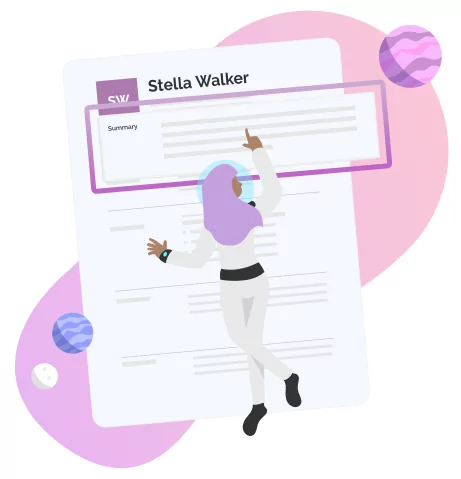 You’ve heard the adage “less is more,” right? Put it to work on your resume.
You’ve heard the adage “less is more,” right? Put it to work on your resume.
Sharing as much information as humanly possible doesn’t work to your advantage.
Callison suggests editing out unnecessary information.
“There is no rule that every job you have ever held must be included, just like there is no reason to include every single job duty that you’ve ever had. Take the time to pick and choose the most relevant information,” she says. “That fast-food job you held for six months in college? Leave it off … Unless the experience relates directly to the job you are seeking, it probably doesn’t have any reason to be on your resume.”
“People try to make these things into autobiographies,” Roccia observes. Rather than aiming for an oeuvre chronicling every moment of your professional life, he advises using “short, high-impact statements make far more of an impression than something that reads like a white paper.”
Stay professional and avoid frivolity: “Don’t give a hiring manager a list of trivia about you and expect them to piece together how you might fit on their team, because they won’t,” says Roccia. “Tell them what you will do for them as clearly as possible in your professional summary so there’s no mystery.”
 Better Resumes Lead to Better Opportunities
Better Resumes Lead to Better Opportunities
No amount of good-employee potential can reverse the effects of a bad resume. It’s well worth taking the time to ensure that your resume falls on the “good” end of the spectrum — that means looking at your resume with a critical eye, identifying problem areas, and taking proactive steps to fix them.
A well-written, articulate, and concise resume demonstrates to a potential employer that you’re smart, responsible, and up to the task. You’ve only got one chance to make a first impression — make sure it’s a good one!








